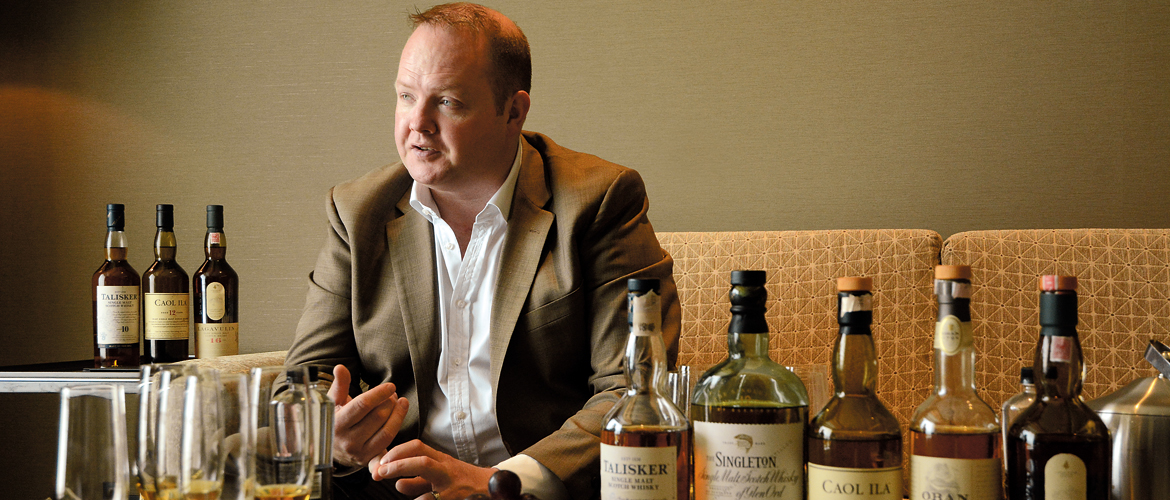OLT: Tell us your whisky story.
Donald Colville: For me, whisky is more than just a
OLT: What do you look for in your drink? What are the parameters you measure it against?
Donald Colville: I fear questions like this one and the answers tend to get a bit pretentious. What I really look for is a well-balanced drink. Be it a single malt that has the perfect balance of American oak and European oak and different distillery characters, none being overly dominating, or a cocktail that is really flavourful. My go-to cocktail will always be Old-Fashioned. In fact, I judge bars on their Old-Fashioneds.
OLT: If you were deserted on an island and could carry only three whisky bottles, which would they be?
Donald Colville: No. 1 on that list would be Lagavulin 16. For me, it’s the perfect expression of smoky whisky from Islay. The second would be—and you’re probably thinking that I’m saying this because it’s my company brand—Johnny Walker Black Label. It’s balanced, and perfect from both, single-serve neat and mixability perspectives. The last one, if you have a magic wand, then I would like some whisky from my grandfather’s distillery—Talintober. I know of only one bottle that exists. And I don’t know if I can ever afford to buy it.
OLT: Have you got an idea yet as to how Indians like their whisky?
Donald Colville: There is a shift here from drinking more and cheaper to less and better. Also, people are now more accepting of single malts being used in cocktails. Only in the last two years, has the Indian market for single malts grown.
OLT: Any tips on how to best consume whisky?
Donald Colville: If you are enjoying a neat drink, a rocks glass is never good for holding the aroma. You want something concave. If you want your drink with ice, my suggestion would be to go for one large block of ice instead of cubes so that the rate of dilution is much less.
OLT: You were one of the judges in the Diageo Reserve World Class Competition India finals. What do you look for in your ideal bartender?
Donald Colville: You want them to come with a strong knowledge of the cocktail industry and all of the classics, and have the ability to bring their own twists to them. Also, how they handle the equipment, the bar spins, how they handle ice and limes, how they taste the drink… to some people, this might seem pedantic. But a competition like World Class was created to raise the standards of the drinks industry. The other criterion is the ability to present and host. Also, the drinks should taste nice.
OLT: Have you had any surprises while dining in India? Pleasant or otherwise?
Donald Colville: (laughs) Pleasant first. I was really impressed by the standards of the 12 finalists in the competition. The quality of the drinks was very high and the drinks themselves were true to the Indian palate. But I have also had some experiences where the food and drinks were overly influenced. One of my colleagues had to ban the use of cinnamon sticks because nearly every drink that came to him had a cinnamon stick as the garnish. It’s a nice touch but it gets done to death. I also tasted something that scared me to the core—it was a tamarind sorbet. It was weirdly spicy.
Travel Professional
Sumeet Keswani
Diageo


